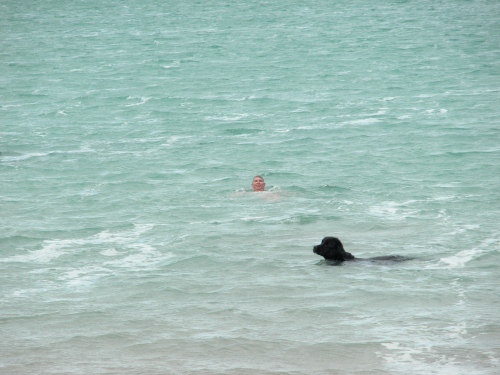The original meaning of “pagan” is country dweller. When city folk made their way into the country with their Christian views, some country dwellers didn’t take too readily. The definition evolved into: country dwellers who were not Christians. Today, I dont hear “country dwellers” when referring to pagans.
We traveled to Cleveland last week to see my son in a performance. It was about a beautiful lake that had dried up. Scientists were trying figure out how to make water to fill it back up. Meanwhile, the “water spirits” were devastated that the water was gone as were the lake visitors. It was a beautiful collaboration of artists of all mediums from my son’s college. Dancers, musicians, visual artists, technical artists, etc.
When it was over, I heard the people behind us talking about pagans and then Pops mentioned that they used pagan rituals in the performance. It went totally over my head. I am very ignorant when it comes to paganism. I wouldn’t see it if it came up and kissed me on my cheek. Mainly cause I don’t know what they are. And it seems to me not appropriate to call someone a name that is not a Christian. For me, they are simply people who do not share Christian beliefs. The word “pagan” sounds derogatory to me.
What I took away from the play is how important our water is to us. It is a necessity. It feeds us. It cleanses us. It is a thing of beauty. It heals us. It entertains us. It feels good against our bodies. It is powerful. It touches each of our senses. Gosh. Really something, isn’t? It is the essential element for life. Thank you, God, for giving us a beautiful gift.
In the play, they sacrificed a couple of people (I think. Like I said, it went totally over my head. This is what I was told. I was busy gathering my own interpretation that had nothing to do with human sacrificing) to bring the water back.
There was a quote that I was struck by. “Nothing can be gained from a solitary sacrifice from one who always cared.”
(A great exception to that is the solitary sacrifice of Jesus Christ dying on the cross to save us from our wretched sins. Much has been gained from that.)
I interpreted the quote to mean: That if I care about something very much, it will not be a sacrifice for me to continue to care. If I have not cared too deeply for something then, to begin caring, it will be a sacrifice. A simple “water” example for this is that if I have always cared about the conservation of water, to use less water in showering, brushing my teeth, washing dishes and watering the lawn will not be a great deal. But if I haven’t cared, then making those changes would be a sacrifice.
AND in this case, we must collectively sacrifice to make a difference.
Aside from the fact we all need water, we all love water, don’t we? I know I love to see water running through our creeks and rivers. Big waves crashing on our beaches. In order to preserve what we love, don’t we collectively have to make sacrifices for that precious element?
It is a critical issue. Are we taking measures to protect our water for our children and their children. Sacrifice IS the answer.
God bless, you people. I love you.
Karen













